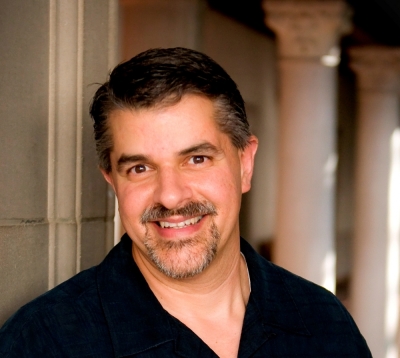Christian Apologist Who Is Biochemist: Science Proves Need for Creator

Science itself proves the need for a creator, says biochemist and Christian apologist Fazale Rana, executive vice president of Research and Apologetics at Reasons to Believe.
In an interview with the Christian Post, Rana discussed the achievements of his two debates in May, and his upcoming teaching schedule. He continues to work to put forward "a model supported by scripture that can be subjected to the rigors of scientific testing."
In May, he debated Michael Ruse, Florida State University professor of the Philosophy of Biology, Ethics, and the History and Philosophy of Science. Ruse also testified as a key witness for the 1981 case McLean v. Arkansas, which struck down the Arkansas state law permitting the teaching of "creation science."
Debating Ruse, Rana laid out four points. "Every attempt to explain the origin of life through natural means has arrived at a dead end," he asserted, defending his argument with numerous references to scientific literature.
"When you examine the work done in a laboratory setting what you find is that the role of the researcher is integral for the success of the experiment," he added. Experiments aiming at a natural explanation for life's beginnings – both in prebiotic chemistry (the origin of life) and synthetic biology (generating artificial life) – "indicate the critical role of intelligent agency."
Rana detailed many different kinds of experiments from three different approaches: replicator first, metabolism first, and membrane first, and found that "there are fundamental intractable problems that essentially invalidate each approach." In other words, no present theory can explain how life emerged from basic compounds.
He quoted scientist Simon Conway Morris, in his book Life's Solution, saying "many of the experiments designed to explain one or other step in the origin of life are either of tenuous relevance to any believable prebiotic setting or involve an experimental rig in which the hand of the researcher becomes, for all intents and purposes, the hand of God."
From here, Rana turned to William Paley's watchmaker argument, which runs "as a watch requires a watchmaker, life requires a creator." A watch, which features a design so complex and efficient, requires an explanation. Living creatures, which have even more complicated systems that all perform various functions, also imply a designer.
Ruse countered this argument, saying that while no origin of life researcher "is giving you a cast-iron analysis or proof," each has made progress toward a solution. "It's really silly – in a philosophical sense, this isn't personal – to say, throw up your hands, and believe in miracles," Ruse said.
"If you want to throw in miracles because you've got a Bible position, I'm not going to stop you," he added. "But you're not doing science now."
"There's nobel prizes out there, and appealing to Genesis 1:2 is not going to get you one."
Rana defended his position, pointing out that "science rarely proceeds from observation to theory. More often than not, the inspiration for scientific models comes from a variety of different places."
In Rana's view, Ruse cuts off another framework of examining scientific evidence. "They're playing off the track record of science to argue that we'll eventually be able to explain the origin of life," he told CP. "You're just simply avoiding the issues, if you will, by appealing to the future."
Ruse's argument did appeal to the future. The philosopher of science argued that "the next generation" may discover the secret of life, and took great pains to say "that we're starting, slowly and painfully, to block out a picture of how the cell came into being."
Rana takes a middle course between literal 6-day creation and theistic evolution. In both cases, he argues that "the motivation is a good motivation," but "we offer a third course."
"If you look at Genesis 1 in light of Genesis 2, you see that Adam and Eve were created at the very end of the sixth day of creation," he argued. Between Adam's creation and Eve's, however, God puts Adam in a garden, tells him to name the beasts, and allows time for Adam to realize that no animal is suited for him. "Those events clearly would have taken more time than 24 hours."
His model, "while it accepts an old earth and an old universe, also challenges an evolutionary interpretation of life's origin."
In June, Rana taught at the RZIM Summer Institute at Wheaton College. Sunday, he will present "a human origins model that incorporates the latest scientific advances with the biblical account of humanity's creation" at New Song Church in San Dimas, Calif.

Rana said that Reasons to Believe is growing. "I think people are viewing the ministry as an important player in the science debate."
Reasons to Believe aims "to spread the Christian Gospel by demonstrating that sound reason and scientific research – including the very latest discoveries – consistently support, rather than erode, confidence in the truth of the Bible and faith in the personal, transcendent God revealed in both Scripture and nature."




























